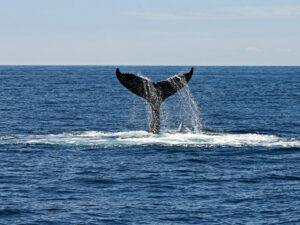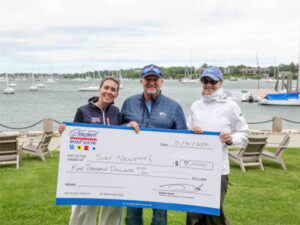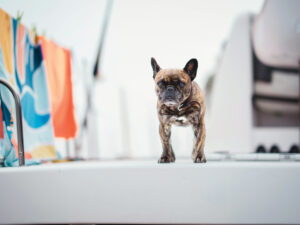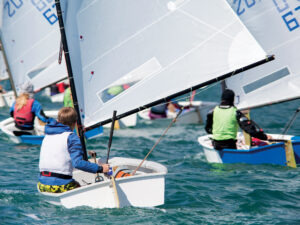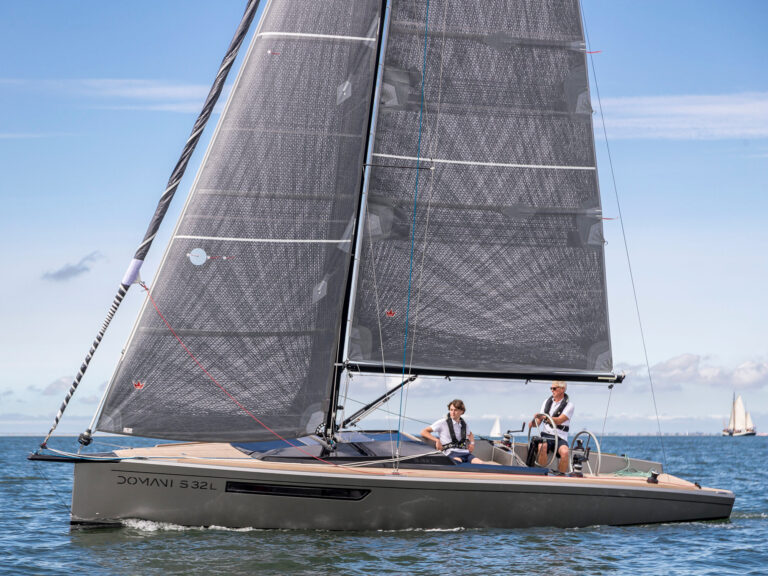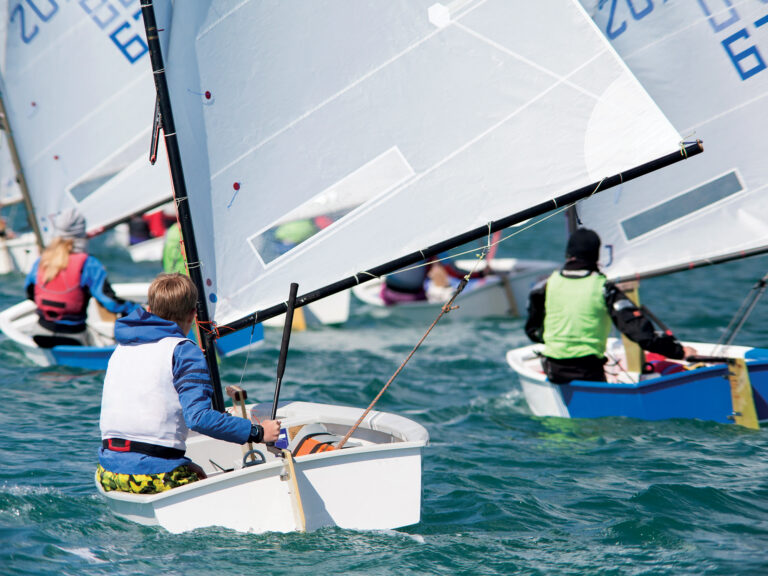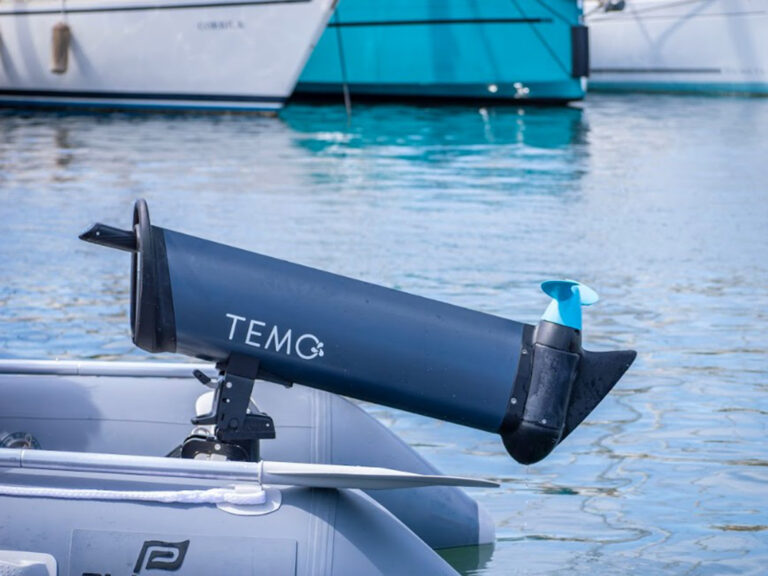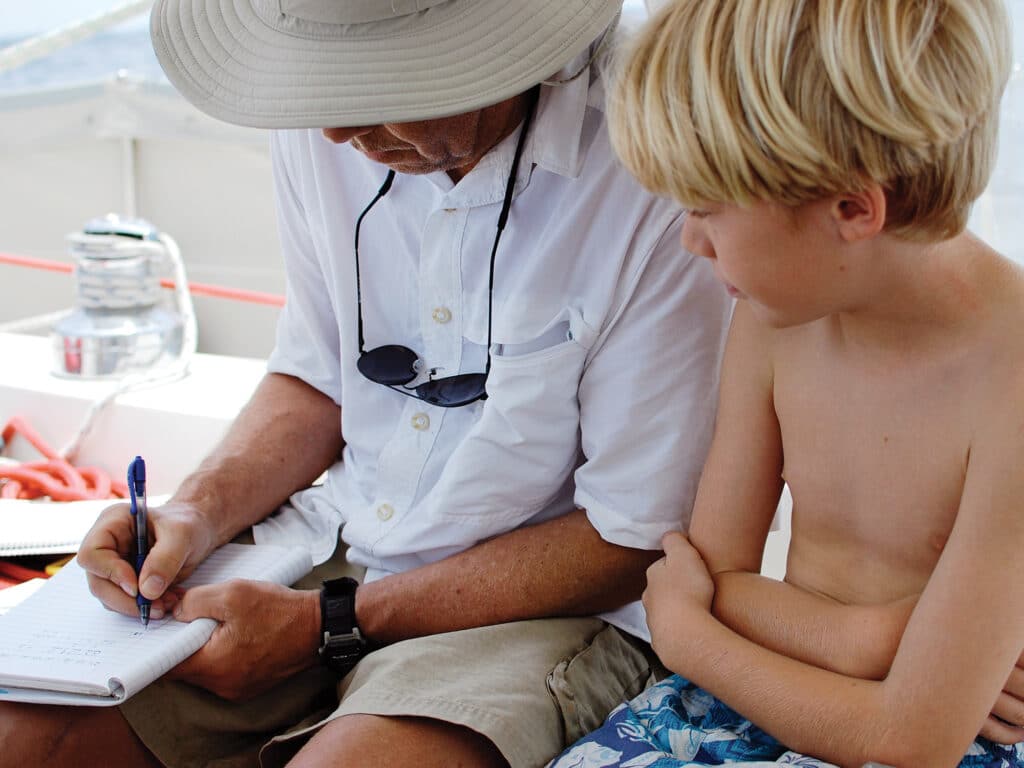
In the early days, when I thought about what it might be like cruising and home-schooling, the vision went something like this:
Warm, dappled morning light streaming in through the open companionway, my daughters working on journal entries. Me making coffee while gathering items for our morning science lesson, which would, of course, tie into that day’s reading assignment. My husband, Green, working on route-planning and navigation exercises over breakfast. After a snorkeling break (with fish and coral identification, naturally), the girls would do math without complaining, and then we’d hunt for shells, which we would somehow turn into an art project. Visits to town would be prefaced by a study of the area’s history.
There would be lesson plans. We would be organized. Our curriculum would be exciting and relevant, and meet all of the standards from back home. The kids would be engaged and eager to learn.
This was, obviously, a fantasy.
When an old friend reached out recently with questions about home-schooling while cruising, I hesitated to answer—even after a couple of winters sailing south with the kids to the Bahamas.
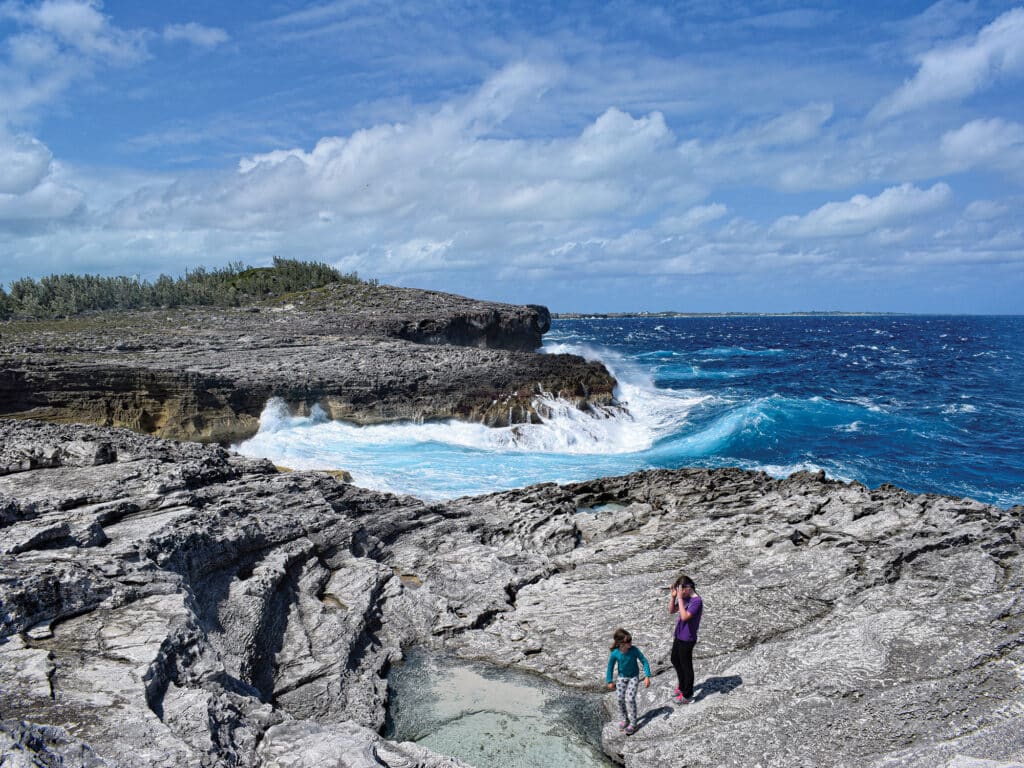
Why did I go silent? Because, while some of our days had included some of the elements I’d envisioned, most days saw the kids begrudgingly sitting at the salon table doing some pages in workbooks, with me imploring them to “get school done” so we could go ashore. If we were underway, forget about it. School took a backseat. I was not quite the teacher I had hoped to be—nor was I terribly creative or organized. I worried that they’d be behind their peers, and that I was failing to embrace the opportunities around us.
Looking for advice that I could pass on to my friend, I reached out to a few veteran cruisers who had many years of “boat-schooling” in their wake. What I discovered was surprising and comforting: What they envisioned wasn’t always what ended up working either, and doubts were common.
What Worked, What Didn’t
When Behan Gifford and her husband, Jamie, set out cruising with their three kids—who were entering preschool, first and fourth grades—they knew they wanted to “de-school.” This is a length of time with less, if any, focus on formal schoolwork. It’s sort of an ease in to home-schooling where you learn what the kids’ natural areas of interest are.
“The idea of de-schooling is that we, parents and kids alike, need time to reset on how learning will happen on board,” Behan Gifford says. “Home-schooling on board doesn’t have to include the stress, the approach or many other aspects of mainstream school.”
It’s one of several approaches that I considered for our girls, Caitlin and Juliana, who were in sixth and first grades when we set out aboard Lyra, our family’s Reliance 44 ketch. Our approach ended up being eclectic. I sort of based our materials on where they had left off with their classes, with the thought that we would fill in with lessons that I made up, related to our surroundings.
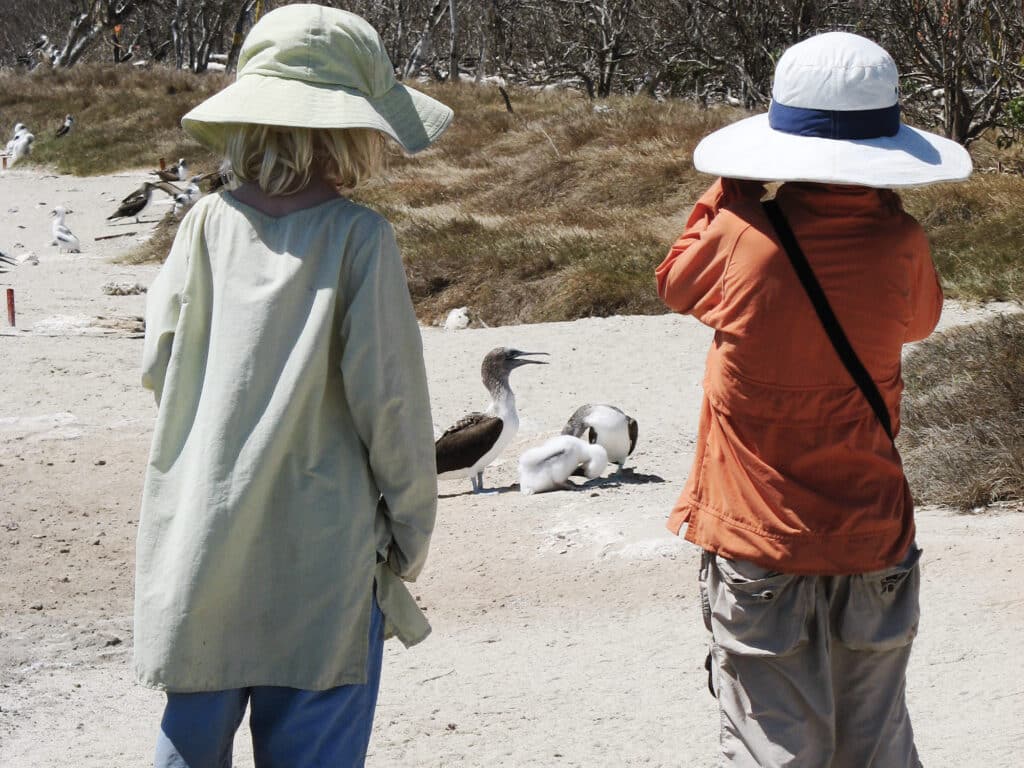
Other options could have been a “school-in-a-box” approach where you order a complete grade-level curriculum, and oftentimes have remote support from a teacher or adviser; an online school where kids log in and do activities each day; or unschooling, which lets the kids follow what interests them.
The Gifford family, after de-schooling with their kids, went with a sort of unschooling approach. “Natural learning felt like a natural fit,” Gifford says. “We stuffed the boat with primary resources, from field guides to an encyclopedia set to books about the places we’d be exploring together, and let it flow. There were also standard-issue grade-level workbooks, because if a kid wanted to do that, well, then, that’s what they did. Opportunities to learn were everywhere.”
Erin Carey and her family also had a pretty laid-back approach at the beginning. The family left to go cruising in February 2018 when the kids were 3, 7 and 8, and they cruised the Caribbean for two years before crossing the Atlantic.
“While we thought school was important, we were pretty relaxed and open to finding new ways for the kids to learn,” Carey says. “I decided we didn’t want the school-in-a-box approach because we didn’t want to have to send results home or order books via [snail mail]. We also didn’t want to have to rely on the internet. Our approach completely changed after a couple of years.”
The Eccles family, whose daughters were 10 and 12 when they set out on the Oyster World Rally in September 2021, began with a more structured approach.
“When we first left Monaco, we planned for the girls to use a full curriculum from Laurel Springs,” Kate Eccles says. “They offered us a more traditional textbook option rather than online schooling because we knew that Wi-Fi and data would be a challenge, particularly when on passage for weeks at a time. Unfortunately, what we didn’t realize until the girls actually started the schooling was that at the end of every lesson, they were required to do an online test, which of course they were unable to do.”
The Reality
Carey says that she needed to adjust her schooling to reality: “I realized that I was not really creative enough or patient enough to make up lessons each day. I also hated wondering if I was doing enough.”
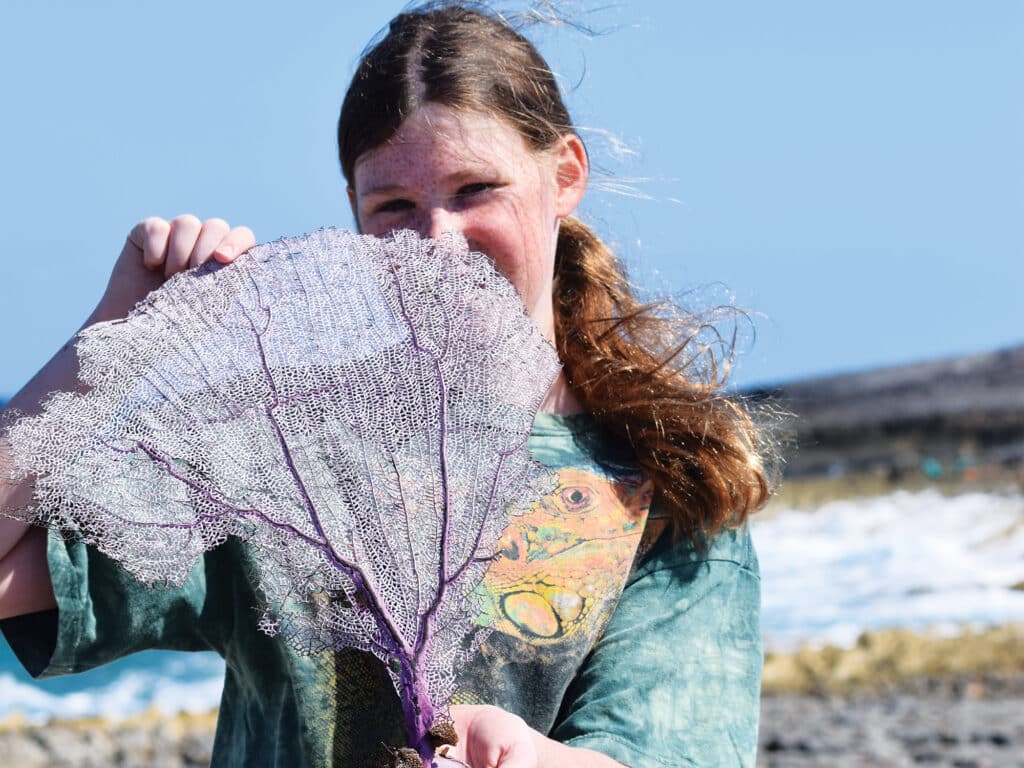
After a cruising pause during the pandemic, the family continued on to the Mediterranean, where they cruised for almost two years. “For the second time around, we went with the complete opposite kind of curriculum,” Carey says. “We signed up to an online school called Acellus. The kids simply had to open their computers and log in, then watch videos and answer questions based on those videos. In theory, it sounded amazing. It took all of the teaching out of the equation for us, and we never had to worry if they were working at the right grade level.”
This went OK for about six to eight months, and then, the younger kids got bored. The oldest son continued with Acellus, and the family added writing assignments because they felt that the program lacked in that area. They moved the two younger kids into a program called My Homeschool, a curriculum that emphasizes high-quality literature.
Aboard Lyra, our girls kept up with their workbooks, and I kept my fingers crossed that they would fit in with their classmates once we returned to land. A difference in our situation compared with the other families is that our timeline was much shorter. Our girls wouldn’t get too far off course, but we never really were able to settle into a good rhythm with home-schooling.
Eccles’ family came to a similar conclusion. “A huge part of the Oyster World Rally for us as parents was that we would expose our children to alternative forms of learning,” she says. “The bulk of our days included learning to sail, to log coordinates on charts, and participate in SSB calls.”
Her kids also learned to prepare meals, organize provisions, and live in a confined space. Patience and hard work were emphasized, and they developed a sense of responsibility by being on time for their watches.
“They experienced firsthand learning about wildlife, not only in the oceans, but also on land all around the world, from the Galapagos to the Gili islands, and were exposed to an array of different cultures and religions,” she says. “Sure, we knew that the girls possibly might return to regular life weaker in certain areas of the curriculum, however, we felt that the rally really was an education in itself and an experience of a lifetime.”
Lessons Learned
There is no “best” way to home-school on board. What will work for your family might look completely different from the family down the dock, and you will likely go through times when you doubt yourself.
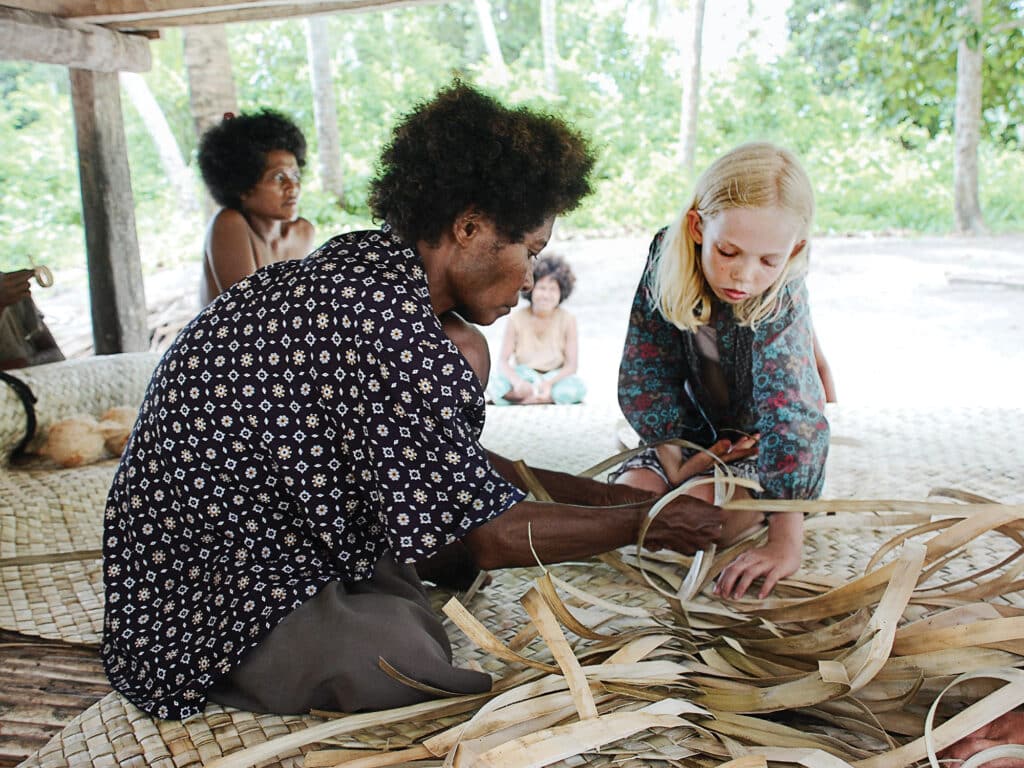
“Know that the first steps into home-schooling will be uncomfortable, and the approach you take probably won’t work out quite the way you imagined it,” Gifford says. “That’s OK. Reset, and try again. You can always stop, breathe, and reset from the place you find yourself. Most cruising families do this—sometimes a few times—to different degrees. It’s a lot of pressure felt by parents. It’s often not pretty to navigate the delicate roles of parent and teacher or learning facilitator, but we have yet to see dismal failures as long as parents are keeping minds and hearts open to continue trying until they land on the right balance for their kids and themselves.”
Eccles agrees: “Get the kids reading as much as possible. If you can, get them used to using e-readers because this will save a lot of time trying to find bookstores as you go around the world.”
Also try to see everything that you’re doing as a learning or teaching opportunity, she says, and enjoy the adventure.
Things to Consider
The pandemic changed many aspects of daily life, especially school. “Home-schooling has blossomed,” said Melissa Robb, home-school advocate for ENRICHri, a Rhode Island home-school support group. “It was already on the rise, steadily, across the country, really, across the world, but throw in a pandemic along with a plethora of social issues, and it skyrocketed. With the higher numbers comes more resources in the marketplace and locally via libraries, businesses and museums.”
This availability of resources has been a game-changer for cruising families, but the options can be overwhelming. Before committing to a full curriculum, ask if your kids can try a few lessons to make sure it’s a good fit. Also keep in mind that many of the online-learning options require a robust internet connection (and unlimited data), and some courses have a set class schedule. This could all work well if you’re at a dock with great Wi-Fi, but less so if you’re actively cruising.
Resources include the Kids4Sail Facebook group, made up of cruising families around the world. It has a frequently updated spreadsheet with common curricula that cruising families are using.
World Book has textbooks and workbooks in all subject areas, as well as digital resources.
Outschool can help with everything from a one-time drawing class to weekly Spanish lessons. Because these classes are over video, Outschool requires high-speed internet access.
Voyaging With Kids by Behan Gifford, Sara Dawn Johnson and Michael Robertson (available in print and e-book) is a treasure trove of information for any family considering going cruising.
Lesson Plans Ahoy by Nadine Slavinski, third edition (available in print and e-book) covers a variety of subjects and can be adapted for kids ages 4 through 12.
Jennifer Brett is a CW editor-at-large.

